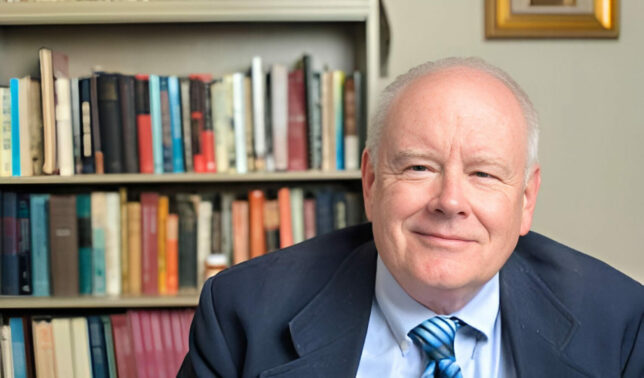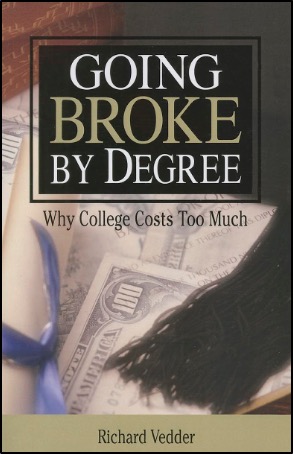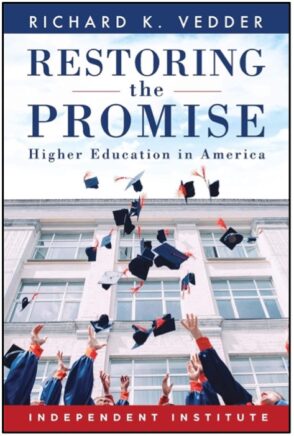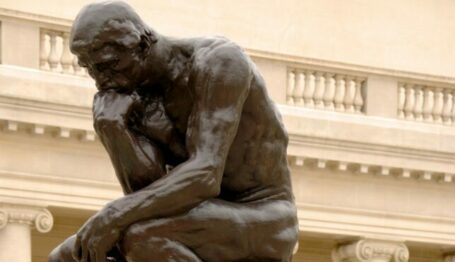Philanthropy
A Conversation with Economist and Historian Richard Vedder (Part 1 of 2)
The Ohio University professor emeritus talks to Michael E. Hartmann about the academic study of economics overall and applies a basic, general economic concept or two in the context of charitable giving to higher education.
 Richard Vedder. Credit: Ohio University.
Richard Vedder. Credit: Ohio University.

Richard Vedder is a distinguished professor emeritus of economics at Ohio University in Athens, Ohio, and a senior fellow of the Independent Institute in Oakland. He previously has been an adjunct fellow of the American Enterprise Institute, an economist for the U.S. Congress’ Joint Economic Committee, and director of the Center for College Affordability and Productivity.
His scholarship has focused on macroeconomics, economic history, and the economics of education. His many books include 2004’s Going Broke by Degree: Why College Costs Too Much and 2019’s Restoring the Promise: Higher Education in America.
Timely Topic
A Wall Street Journal op-ed by Vedder in December that caught our Giving Review eye began, “What can we do about the corruption of American higher education? Milton Friedman had an idea 20 years ago: Tax the schools rather than subsidize them.” In the article, Vedder quotes a 2003 e-mail to him from Friedman, then 91 years old. “I have not changed my view that higher education has some positive externality,” Friedman writes to Vedder,
but I have become much more aware that it also has negative externalities. I am much more dubious than I was … that there is any justification at all for government subsidy of higher education. The spread of PC [political correctness] would seem to be a very strong negative externality, and certainly the 1960s student demonstrations were negative externalities. … A full analysis along those lines might lead you to conclude that higher education should be taxed to offset its negative externalities.
According to Vedder, the “past 20 years have seen negative externalities multiply.” After listing several examples of them, he writes, “The case for taxing universities is stronger than ever.”
As Vedder notes, in 2017, Congress imposed a small 1.4% excise tax on the net investment income of large, tax-exempt, nonprofit endowments that only applies to some 35 wealthy private colleges and universities. In a 2021 article about Yale’s tax-exempt endowment, Vedder writes that even with the small excise tax, “still the tax benefits of its university status far exceed the costs.”
Earlier last month, U.S. Sen. J. D. Vance introduced a bill that would increase the excise tax on the endowment income of secular, private, nonprofit colleges with at least $10 billion in assets under management to 35%.
Talking Pseudo-Science, and Markets and Mistakes
To talk about these and related matters, Vedder was kind enough to join me for a conversation earlier this month. The almost 13-and-a-half-minute video below is the first part of our discussion; the second is here. In the first part, before addressing endowment taxation in the second, we talk about the academic study of economics overall and he briefly applies a basic, general economic concept or two in the context of charitable giving to higher ed.
The academic study of economics has “become more technical, to be more pseudo-scientific,” Vedder tells me. “Economists have become more distant from the public, on average. That is to say, their own writing and their own works are less comprehensible to the average, moderately, well-educated human being in the last generation.”
Economists like to think that “by becoming more scientific and more rigorous” and using “statistical methods—econometrics, as we say, things like that—that they have a greater sense of authority today,” according to Vedder. “I’m not sure that’s true.”
Regarding grantmaking to, and grantseeking by, higher ed, “most universities are at least partly dependent on charitable support and some of them mightily so—the Ivies,” Vedder says. “Charitable contributions are vital to the academic space.”
Market pressures are absent. The way businesses succeed, he tells me, is “ironically, partly by failing. We have businesses that fail because the markets don’t let them succeed, because” they make mistakes, and the consequence is “failure, it’s bankruptcy, it’s dying, literally.
“When was the last time you’ve heard of a major university,” he asks, that failed?
If you ask people in 1950, Who are the 10 best universities in America?, you get the same list then as you get today, more or less. Harvard was No. 1 in 1650, 1750, and 1850, 1950, and … 2020 …. We don’t have creative destruction in higher ed, which means that people get complacent.
Philanthropy—by the way, which is necessary and useful and important to higher ed—serves … a very important function, but it does also have the possibility of prolonging organizations that maybe should fail. Sometimes, we allow schools to limp along for a number of years. It might have been better if they really had failed and new ones come along.
In the conversation’s second part, Vedder discusses whether tax-incentivization is a subsidy, the taxation of endowments in higher education, Friedman’s e-mail to him about negative externalities in higher ed, whether there might also be negative externalities in philanthropy, and the taxation of endowments in philanthropy, as well as a little about the Ohio Bobcats’ football team.
This article originally appeared in the Giving Review on January 11, 2024.




